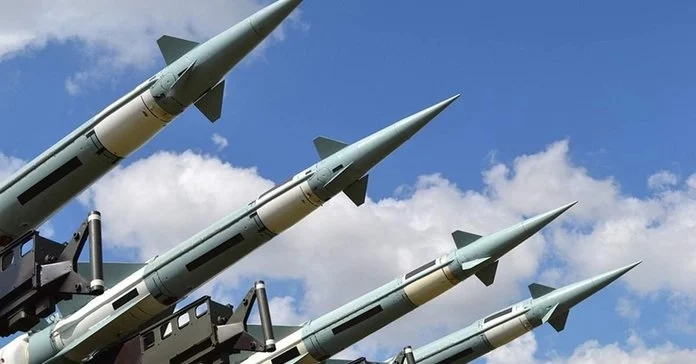US intelligence has assessed that the risk of a Russian nuclear attack remains low, even as President Vladimir Putin ramps up his rhetoric, sources familiar with the matter told Reuters.
According to the sources, Washington’s decision to loosen restrictions on Ukraine’s use of American long-range weapons has not significantly heightened the threat of nuclear escalation.
JOIN US ON TELEGRAM
Follow our coverage of the war on the @Kyivpost_official.
Five individuals with knowledge of US intelligence, including two senior officials, a lawmaker, and two congressional aides, said that recent assessments consistently conclude that nuclear escalation is unlikely, Reuters reported.
These evaluations were conducted over seven months and reaffirmed following US President Joe Biden’s decision to provide Ukraine with ATACMS missiles, which have a range of up to 190 miles (306 km).
“The assessments were consistent: The ATACMS weren’t going to change Russia’s nuclear calculus,” said one congressional aide briefed on the intelligence.
Instead, US officials believe Moscow is likely to escalate its campaign of hybrid warfare, including sabotage operations in Europe, to exert pressure on the West.
Angela Stent, director of Eurasian, Russian, and East European Studies at Georgetown University, said: “Russia’s hybrid response is a concern...The chance of escalation was never not there. The concern now is greater.”
Intelligence driving policy

Putin in Camouflage Visits Kursk as AFU Battles Rage in Sudzha’s Suburbs
Sources told Reuters Washington’s decision to loosen weapons restrictions sparked debate within the Biden administration, with initial resistance from officials in the White House, Pentagon, and State Department. Concerns included the risk of retaliatory attacks on US personnel or NATO allies and potential nuclear escalation.
However, Biden shifted his stance, reportedly influenced by North Korea’s military support for Russia amid the ongoing war in Ukraine.
Some officials now believe previous fears of escalation were exaggerated. Nonetheless, they caution that Russia’s ability to retaliate through covert or non-nuclear means remains a serious risk, per the report.
Hybrid warfare likely to expand
US intelligence suggests that Russia may focus on unconventional tactics rather than nuclear escalation. Last week’s test launch of a new Russian ballistic missile, which analysts believe was a warning to the West, has not altered the overall risk assessment.
One US official said that while Moscow is unlikely to escalate using its nuclear forces, it may seek to match perceived US escalation with other measures, such as deploying new missile systems.
The Kremlin did not immediately respond to Reuters’ request for comment, and the White House and the Office of the Director of National Intelligence also declined to comment on the assessments.
The debate over weapons restrictions continues to shape US policy toward Ukraine. While the Biden administration is now less concerned about immediate nuclear threats, officials said that the overall situation remains precarious.
Russia’s ability to find other covert ways of retaliating against the West is a worry, a senior US official said.
On Nov. 19, Ukraine fired US-made ATACMS missiles into Russia for the first time, targeting a missile and artillery facility in Bryansk, according to the Russian Defense Ministry. On the same day, Russian President Vladimir Putin signed a decree lowering the threshold for nuclear weapon use, drawing condemnation from Western nations.
Amid escalating tensions, rumors emerged on Nov. 20 about a possible Russian strike using the RS-26 Rubezh missile.
On Nov. 21, Russia launched its “Oreshnik” intermediate-range ballistic missile at Dnipro. Putin hailed the hypersonic, non-nuclear missile as a success, announcing plans for further tests and production.
Since Nov. 21 rumors have circulated suggesting the Biden administration might return nuclear weapons that Ukraine relinquished in the 1990s as a deterrent against Russia’s continued invasion.
However, Kyiv Post confirmed that these rumors stem from an unfounded claim made by certain US officials cited in the New York Times and are purely speculative. For one, under the Budapest Memorandum, Ukraine’s nuclear weapons were transferred to Russia.
You can also highlight the text and press Ctrl + Enter











